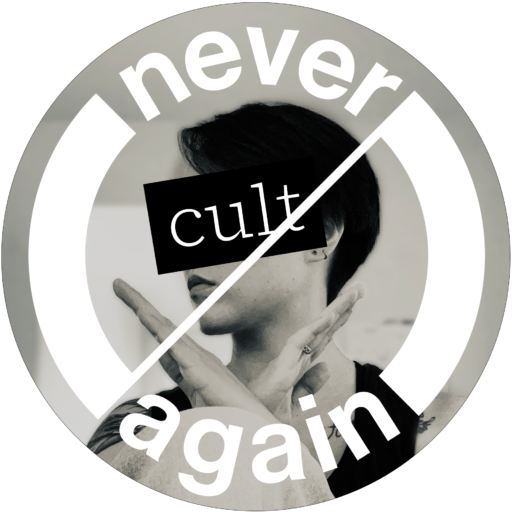Dr. Steven Hassan describes “thought stopping” as a technique cult members are taught to use in cults that exert mind control.
Thought-stopping techniques include praying, chanting silently, and meditating. “These actions, at times useful and valuable, become perverted in destructive cults,” Hassan writes. “They also become quite mechanical, because the person is programmed to activate them at the first sign of doubt, anxiety or uncertainty.”
In his book God’s Called Ones, Pastor Joo-Cheol Kim writes, “Unless we are joyful always, pray continually and give thanks in all circumstances, complaints form in our hearts.”1God’s Called Ones, Joo-Cheol Kim, p. 388. The hearts of those who grumble, he continues, are filled with complaints and they ultimately come to deny God. 2God’s Called Ones, Joo-Cheol Kim, p. 393.
In the WMSCOG, prayer and giving thanks in one’s mind become ways to stop “bad thoughts.” Members are conditioned to automatically push away negative thoughts and fill their minds with positive and “godly” thoughts instead.
Because critical thoughts could form doubts about the WMSCOG’s doctrine, thought-stopping is an effective way to kill critical thinking in members.
Thought stopping can also be a mental compulsion common in obsessive-compulsive disorder.3Dean McKay, PhD, Jonathan Abramowitz, PhD, and Eric Storch, PhD, Ineffective and Potentially Harmful Psychological Interventions for Obsessive-Compulsive Disorder, https://iocdf.org/expert-opinions/ineffective-and-potentially-harmful-psychological-interventions-for-obsessive-compulsive-disorder/. Even after leaving the cult, I continued the ritual of thought-stopping, although it no longer took the form of praying and giving thanks. For example, I would use the “kill me” mantra to push unwanted thoughts out of my head.
When I had therapy appointments, I would report all the good things and the progress I was making. It was very difficult for me to admit anything negative, including what I was struggling with that I was going to therapy for in the first place. “You’ve told me all about what’s going well,” one therapist told me. “So what do you want to work on?”
In OCD, mental rituals can take a significant amount of time out of the day and make it difficult for a person to perform normal activities or think properly. Due to my constant and heavy filtering of my thoughts, I found it difficult to read and speak smoothly or pay attention to conversations happening around me.
While undergoing exposure and response prevention (ERP) therapy, I practiced speaking without overthinking by having conversations with my family members about books that I was reading or sending unplanned voice recordings to my cousin in the Philippines. It took a while, but eventually I was able to shake my thought-stopping habit.
